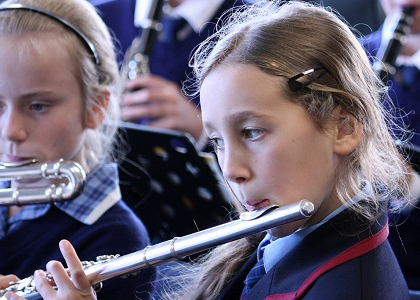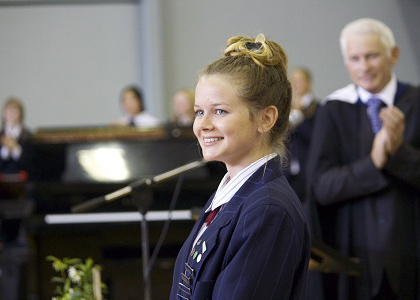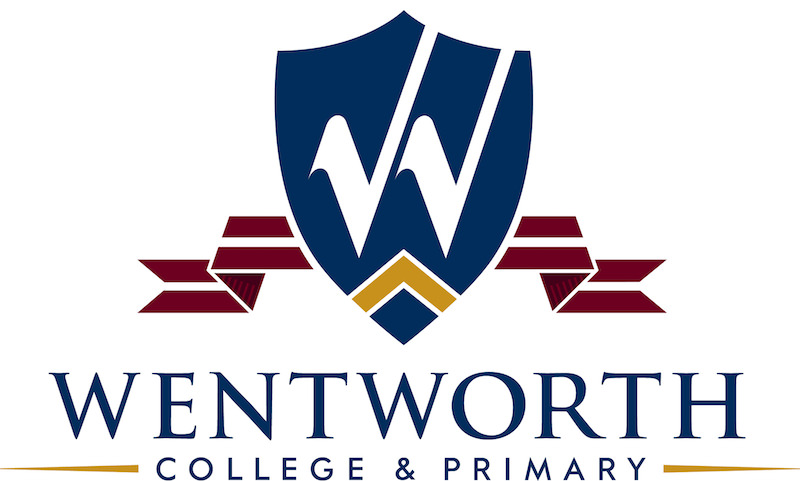PRIVATE SCHOOL REVIEW REPORT: WENTWORTH COLLEGE
1. BACKGROUND
Introduction
The Chief Review Officer has a statutory duty to report on the performance of private schools throughout New Zealand.
Under section 35A of the Education Act 1989, private schools are required to be “efficient”. The Act defines “efficient”, in relation to a private school as –
- Having suitable premises, staffing, equipment, and curriculum; and
- Usually providing tuition for 9 or more students who have turned 5 but are under 16; and
- Providing suitably for the inculcation in the minds of students of sentiments of patriotism and loyalty; and
- Giving students tuition of a standard no lower than that of the tuition given to students enrolled a schools of the same class.
This report focuses on the extent to which the school meets this requirement and other statutory obligations.
This review report was prepared in accordance with standard procedures approved by the Chief Review Officer.
About the School
| Location | Gulf Harbour, Whangaparaoa |
| Ministry of Education Profile number | 484 |
| School type | Secondary (Year 7 – 13) |
| Decile rating¹ | 10 |
| Number of Teachers | 21 |
| School roll | 218 |
| Number of foreign fee-paying students | 25 |
| Ethnic composition | New Zealand European/Päkehä 81%, Korean 11%, European 6%, Others 2% |
| Gender composition | Girls 52%, Boys 48% |
| Review team on site | Nov-06 |
| Date of this report | 18-Dec-06 |
| Previous ERO report |
¹ Decile 1 schools draw their students from areas of greatest socio-economic disadvantage, Decile 10 from areas of least socio-economic disadvantage.
2. EFFICIENT
Background
Wentworth College is an independent co-educational school designed to cater for students from Year 7 to 15. The school began operation in January 2003. The October 2003 ERO review commented that the principal and his staff had made a very good start to implementing the founder’s vision of a comprehensive and challenging curriculum that will provide high quality education in a positive and caring school environment. Wentworth College continues to be committed to provide high quality educational opportunities through a holistic and challenging curriculum, effective teaching and pastoral care. Traditional values and a broad based curriculum underpin students’ participation and leadership opportunities in academic, cultural, sporting and co-curricular activities. The board, senior managers and staff continue to grow the school by developing and strengthening systems to realise the founder’s vision of excellence.
Students achieve very well in national examinations, sporting and cultural events. Their strengths and talents are nurtured, celebrated and extended in a family learning environment. Students are confident, articulate and enjoy a variety of educational opportunities to achieve excellence. They demonstrate pride in their school.
Effective teaching and learning programmes contribute to high levels of student achievement. Highly skilful practitioners, together with generous staff/student ratios support teaching and learning programmes that are student focused. Most teachers employ teaching strategies that assist students to be active partners in learning. These teachers are skilful in delivering purposeful learning opportunities in meaningful contexts. They adopt teaching strategies that promote critical thinking and use of meta-cognitive strategies. As a result high levels of engagement and collaborative discussion are a characteristic of classroom programmes.
The principal and deputy principal work collaboratively to develop and strengthen school operations to effectively manage growth, while maintaining an emphasis on student participation and academic success. They model appreciative inquiry and this is reflected in the positive ethos that permeates the school, where strengths are built on and further developed. The principal and deputy principal are highly determined and committed to ensure that programmes and learning opportunities will enable every student to achieve their personal best.
Wentworth College is deemed to be efficient, as defined within section 35A of the Education Act 1989. It complies with all components of its suitability statement and continues to provide high standards of education and care for students
3. STATUTORY OBLIGATIONS
Suitable curriculum
Student achievement, participation and pursuit of excellence are features of the school curriculum. The New Zealand national curriculum forms the basis of curriculum programme planning and delivery. Teachers work closely together in their efforts to provide a seamless learning pathway. Students in Years 7-8 benefit from personalised learning programmes and achieve highly. This achievement continues into the senior school where high achievement results gained from National Certificate of Educational Achievement (NCEA) reflects the effective teaching and learning programmes that operate across the school.
Heads of faculty are in the process of developing and refining curriculum schemes to assist teachers in the effective delivery of programmes that are designed to achieve academic excellence and match students’ specific learning needs. They document achievement expectations that provide teachers with benchmarks and clear direction for learning.
Students have good opportunities to enhance their learning through Information and Communication Technologies (ICT). A specialist teacher provides accessible and tailored support for students to be proficient in their use of ICT. The board provides adequately to ensure that students’ learning is further extended through efficient and effective use of ICT.
The school provides a wide variety of academic programmes and extra curricular activities. Physical education and sport enjoy a high profile in the school. In addition, arts and cultural programmes are becoming a feature of the school curriculum. High achievement is gained in music, drama, dance and performing arts. Students participate in individual and team sports and achieve at national level and make good use of the large gymnasium facility on site. They are involved in school productions and performances. Students benefit from the wide range of learning experiences that the school provides.
Standard of tuition
Programme planning in Years 7-8 is detailed and specific in identifying the purpose of learning for groups and individual students. Teachers in this part of the school plan collaboratively and implement programmes that are well differentiated and personalised. They maintain current achievement information that contributes to modifications and refinements in programme planning.
Planning in the senior part of the school shows strong links to the national curriculum and national achievement expectations. Teachers in this part of the school make use of specific learning outcomes. Students who have academic strengths in particular areas are extended through opportunities to learn at higher levels. Those who have some difficulty in learning are quickly identified and provided with intensive learning support by teachers. Instructional programmes cater well for the variety of learning needs of students. Teaching and learning programmes are student focused. These factors contribute to students achieving well in national examinations.
Student progress and achievement are well monitored and tracked. Assessments are regular and enable teachers to know students’ abilities and next steps in learning. Teachers use achievement information to inform their programme planning. Most teachers provide students with specific and descriptive oral and written feedback that affirms their efforts and enables students to identify their next steps for learning.
Most teachers employ teaching strategies that assist students to be active partners in learning. These teachers are skilful in delivering purposeful learning opportunities in meaningful contexts. They adopt teaching strategies that promote critical thinking and use of meta-cognitive strategies. As a result high levels of engagement and collaborative discussion are a characteristic of classroom programmes.
Shared understanding about social expectations and a strong pastoral care programme provides a family culture that students and staff enjoy. Students relate positively with teachers and with their peers. They have good access to external specialist support should this be required.
Suitable staffing
The board and senior managers continue to appoint high calibre specialist staff. They strategically appoint highly qualified personnel who share the vision and commitment of pursuing excellence and are proven effective practitioners. Since the ERO 2003 report the school has grown significantly to include the provision of full secondary education. The board, senior managers and teaching staff have faced and overcome challenges relating to increased roll growth, and have refined and maintained their focus on learning. They demonstrate cohesion in their efforts and direction.
The principal and deputy principal continue to effectively manage the school. They remain enthusiastic, committed and determined to realise the board’s vision. The principal and deputy principal have complementary skills that enable them to work collaboratively. They model appreciative inquiry, where strengths are built on and further developed.
The board has established a performance management system focused on improvement. Appointment processes are well documented and appraisal processes are transparent. Teachers also critique each other and share good teaching practices. Appraisals provide staff with opportunity for reflection and formal and informal feedback. The principal has identified staff who are highly qualified in curriculum and pedagogical knowledge. These staff members facilitate internal school wide professional development where “best teaching practices” are shared to increase teaching capacity. Professional development programmes are linked to performance appraisals.
The principal maintains a current database of teachers’ practicing certificates to ensure that teaching staff are fully registered. The support and guidance programme for provisionally registered teachers should be formalised to better assist provisionally registered teachers to gain full registration.
Suitable premises and equipment
High quality premises, buildings and equipment are provided for students and staff. The attractive park-like setting and well-maintained grounds enhance the school concept of family and community. Planned property developments have been well managed and generous classroom conditions contribute to an effective teaching and learning environment.
Equipment and resourcing have kept pace with growth and changes in curriculum developments and delivery. The newly completed technology block is designed to provide for the wide variety of technologies that students design, create and experience. The library is well organised and thoughtfully set out with computers for individual student access. A worthwhile plan is in place to support growth and development. A senior section has been added to cater for the growing group of senior students. Further increasing the range of periodicals to support New Zealand research would be a useful next step.
Students benefit from a wide range of sporting opportunities. The well-used gymnasium facility supports and increases students’ strengths and talents in pursuing excellence in a variety of individual and team sports. Sporting achievements in golf, swimming and volley-ball has raised the profile of the school.
The board and principal have established and refined systems for monitoring and ensuring physical safety. Safety measures are in place and effective property management and maintenance documentation are kept. Workplace safety, prevention of nuisances and evacuation procedures are included in the provision of a safe learning environment.
Patriotism and loyalty
Senior managers and teachers inculcate appropriate patriotism and loyalty in students through their design and delivery of the curriculum. The curriculum delivered is the New Zealand national curriculum and includes skills, attitudes and values that reflect our dual cultural heritage.
4. OTHER MATTERS
Provision for International Students
Compliance with the Code of Practice for the Pastoral Care of International Students and the Provision of English Language Support.
Wentworth College is a signatory to the Code of Practice for the Pastoral Care of International Students (the Code) established under section 238F of the Education Act 1989. This is a requirement of all schools that enrol international students in terms of the Act. Schools are also required to provide English language support for international students.
Signatories that enrol international students are expected to comply with all sections of the revised code that came into force in August 2003. Since this time all signatories must have reviewed their existing policies and processes to ensure compliance with the Code.
As part of this education review ERO evaluated the extent to which Wentworth College has implemented the Code and, in particular, the school’s compliance with the sections relating to student welfare and accommodation provisions.
Wentworth College currently has twenty-five international students enrolled. The students are well integrated into school life and report that they have many opportunities to pursue their interests in sporting and cultural activities.
The school has well-documented systems and procedures for managing international students. The team of staff responsible for international students have well-defined roles and closely liaise with each other to ensure the students’ pastoral and language support needs are being met. An interpreter is available to staff and students and also provides an important link to parents when necessary.
The director of international students has robust procedures for the selection and monitoring of student accommodation. Home-stay families are provided with relevant information and visited regularly. Positive working relationships with home-stay parents mean that students are well supported in all aspects of their home care.
Students are in regular contact with their parents through email and phone calls. Parents can access regular updates of school events and bulletins through a website established by one of the home-stay parents.
International students are very positive about the school and how they have been welcomed into the college environment. The Year 7 and 8 students receive good language support through an integrated two-day programme each week. They are assessed and monitored closely, with learning outcomes tailored to their individual needs. The senior students are given individual assistance with their learning through their mainstream classes and the language support teacher.
Wentworth College meets all the requirements of the revised code concerning accommodation, welfare and provision of English language support.
5. CONCLUSION
Wentworth College is deemed to be efficient as defined within section 35A of the Education Act 1989. It complies with all its components of its suitability statement and continues to provide high standards of education and care for students.
Wentworth College will be reviewed again as part of the regular schedule of ERO reviews.
SIGNED
Janet Adams
Area Manager Reporting Services (Acting)
for Chief Review Officer
18 December 2006
Discover More

Wentworth Primary

Wentworth College

School Events

International Programme
09 424 3273
Location
Linked In





